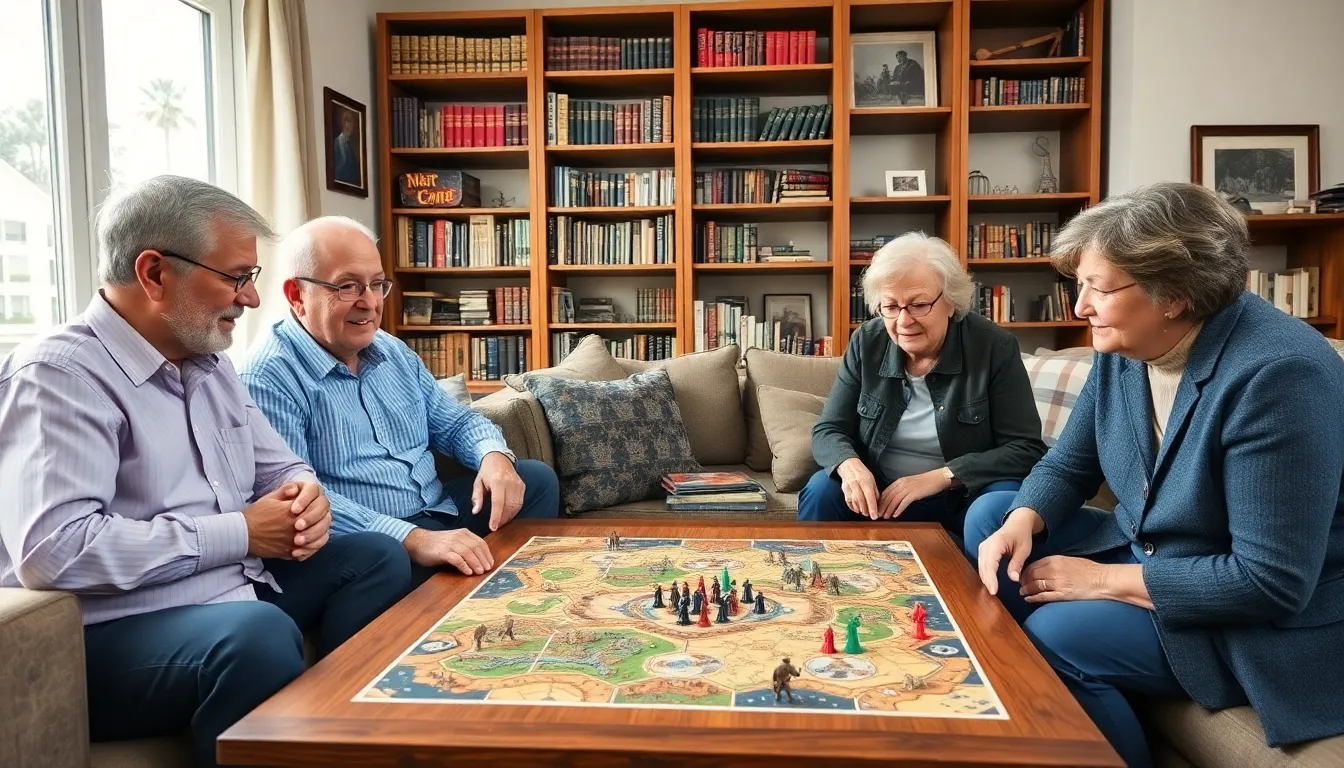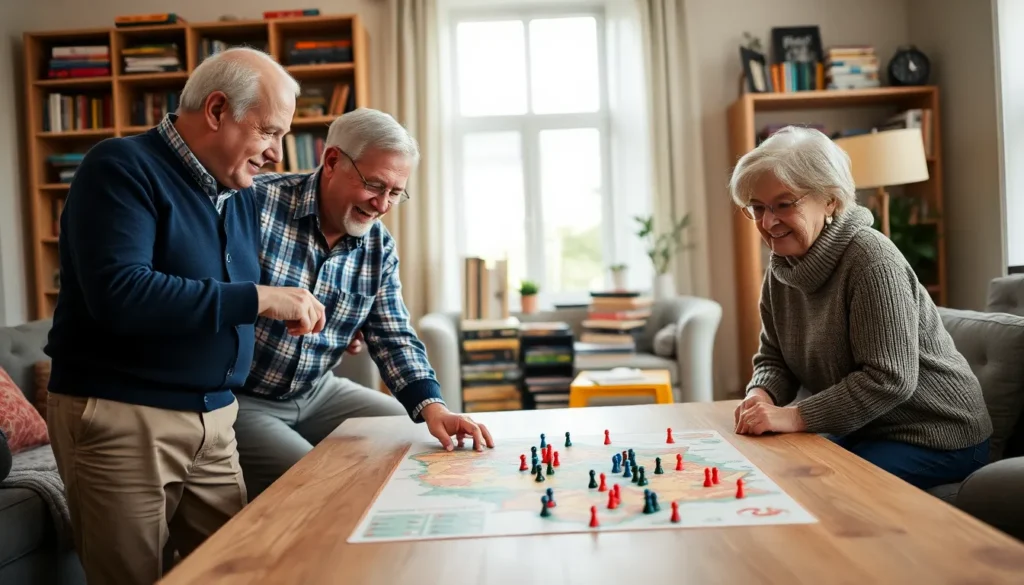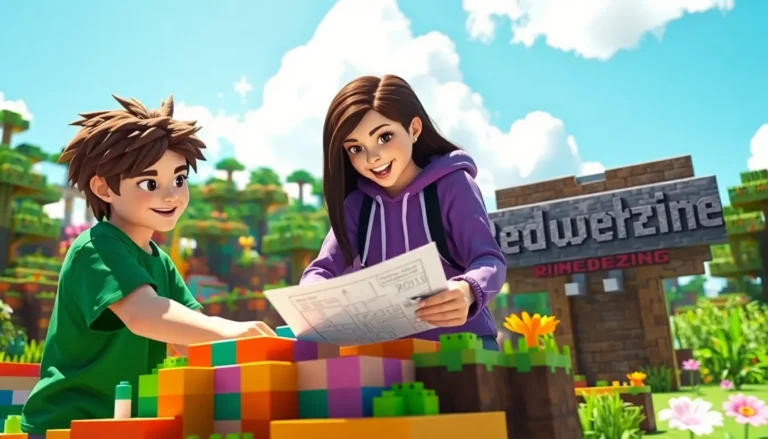Table of Contents
ToggleImagine a world where strategy meets camaraderie, all while keeping the brain sharp and the laughter flowing. Welcome to the realm of war games for elders. This isn’t just about rolling dice and moving pieces: it’s about forging connections and sharpening mental acuity. Let’s jump into why these games are not just battling grounds but also enriching life experiences for seniors.
Understanding the Appeal of War Games for Elders

War games have a fascinating pull, especially for older adults. At first glance, one might wonder what a game about strategy and conflict could offer the golden generation. But, these games often act as stimulating puzzles, challenging players to think critically and adapt. The blend of history, strategy, and social interaction creates a captivating environment.
For many seniors, these games evoke memories of their younger days, tapping into nostalgia and rekindling a sense of adventure. Whether it’s the thrill of a battlefield or the satisfaction of outsmarting an opponent, the appeal is diverse.
Besides, war games often encourage teamwork, with players working collaboratively toward a common goal. This camaraderie nurtures not just competitive spirits, but also friendships, making every game night a cherished memory skillfully crafted on the board.
Benefits of Playing War Games in Older Age
Playing war games presents a cornucopia of benefits for seniors. First and foremost, these games are fantastic for cognitive function. Strategic thinking keeps the mind agile, improving problem-solving skills and memory. Engaging in such mental exercises can delay cognitive decline, proving that
we are indeed stronger than the passing years.
Also, there’s a multitude of fun intertwined with learning. Seniors can explore history, tactics, and even language through themed games, resulting in both education and entertainment. Social interaction is a crucial component of mental health, and war games provide a lively platform for discussions and shared laughter. As seniors navigate through different scenarios, they also experience emotional fulfillment, enhancing overall well-being.
So, it becomes apparent that the benefits of indulging in this thrilling pastime go far beyond the game board.
Types of War Games Suitable for Seniors
The world of war games is vast, encompassing various styles and complexities. For seniors, selecting the right game is essential to ensure enjoyment and ease of play.
- Board Games: Classics such as Risk and Axis & Allies provide straightforward gameplay that fosters strategic thinking without overwhelming players.
- Card Games: Titles like Warhammer Age of Sigmar: Champions blend strategy with card mechanics, allowing for quicker play sessions while still emphasizing tactics.
- Digital Games: The rise of technology has introduced enjoyable platforms like Civilization VI, which are designed for a more seasoned audience. These games provide online experiences that can also keep family members connected.
- Tabletop RPGs: Games like Dungeons & Dragons have flexibility in storytelling, allowing seniors to immerse themselves in role-playing experiences.
With so many options available, seniors can pick games that match their preferences, ensuring fun play for everyone.
Tips for Getting Started with War Games
Embarking on the war gaming journey can feel intimidating, especially for those unfamiliar with the genre. But, there are tips to ease the transition into this captivating world:
- Start Simple: Choosing a less complex game can alleviate initial pressure. Focus on games with concise rules that encourage participation without overwhelming details.
- Learn Together: Invite friends or family to learn alongside you. This creates a supportive environment where everyone can share tips and strategies, fostering a sense of inclusivity.
- Practice Patience: As with any new skill, taking the time to understand the mechanics is vital. Encourage others to be patient and to embrace the learning curve.
- Join Local Groups: Many communities have gaming clubs aimed at seniors. These spaces not only offer guidance but also create opportunities for socializing.
By integrating these strategies, seniors can dive headfirst into the gaming world, discovering excitement and camaraderie they might not have anticipated.
Creating a Supportive Gaming Environment
The right environment enhances gameplay, especially for elders. A few easy adjustments can ensure everyone enjoys the experience:
- Accessibility: Arrange comfortable seating and ensure everything from game pieces to cards are easily accessible, allowing for smooth gameplay without unnecessary strain.
- Good Lighting: Appropriate lighting makes a tremendous difference. Providing ample light ensures that everyone can clearly see the game board and cards, reducing eye strain and improving focus.
- Minimize Distractions: A quiet space without background noise will allow participants to concentrate more effectively and engage fully in the game.
- Encourage Connection: Celebrate wins and losses alike. Creating an atmosphere of positivity fosters social interaction, enriching the overall experience.
Cultivating this welcoming setting allows seniors to enjoy games in a way that feels both exciting and safe.
Community and Social Interaction Through War Gaming
War gaming isn’t just about strategic encounters: it’s about connection. These games open the doors to community bonding, allowing seniors to build friendships through shared interests. Local clubs or online forums offer spaces where players can discuss tactics, share experiences, and grow together.
Seniors often find themselves part of a larger community, breaking down the sometimes isolating nature of aging. Whether joining a game night at the neighborhood café or participating in online matchups, the friendships formed can greatly enrich life.
Also, some organizations host events specifically designed for seniors to uncover the joy of gameplay in larger groups. These settings provide opportunities to meet fellow gamers and induce some healthy competition, sparking conversations and laughter.
In essence, the social component of war gaming transforms the experience from solitary play to a thriving community activity.







